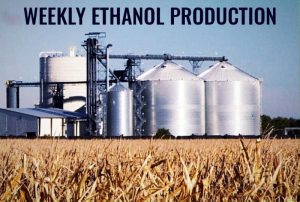 Growth Energy has filed a federal lawsuit challenging the Environmental Protection Agency’s (EPA) failure to address small refinery exemptions in its 2019 renewable volume obligation (RVO) rulemaking issued late last year.
Growth Energy has filed a federal lawsuit challenging the Environmental Protection Agency’s (EPA) failure to address small refinery exemptions in its 2019 renewable volume obligation (RVO) rulemaking issued late last year.
“EPA’s inaction on addressing lost gallons due to small refinery exemptions in this rulemaking is a clear violation of law,” said Growth Energy CEO Emily Skor. “In doing nothing to remedy these and other deficiencies, EPA has again failed to meet its statutory obligation to ensure that annual RVOs are met each year. Today’s filing calls for greater accountability from EPA to ensure that every renewable fuel obligation is fulfilled as the law intended.”
Despite repeated challenges by Growth and others in 2018, both in petitions and comments to the agency and before federal courts, EPA has steadfastly failed to make good its statutory obligation to ensure that RVOs established by the Agency are met each year. EPA explicitly refused to take up the issue of small refinery exemptions in its 2019 RVO rulemaking, stating that such exemptions were “beyond the scope” of the rulemaking.
Growth Energy filed extensive comments challenging EPA’s refusal to address the issue, in particular challenging EPA’s failure to reallocate renewable volume obligations of exempt refiners.










